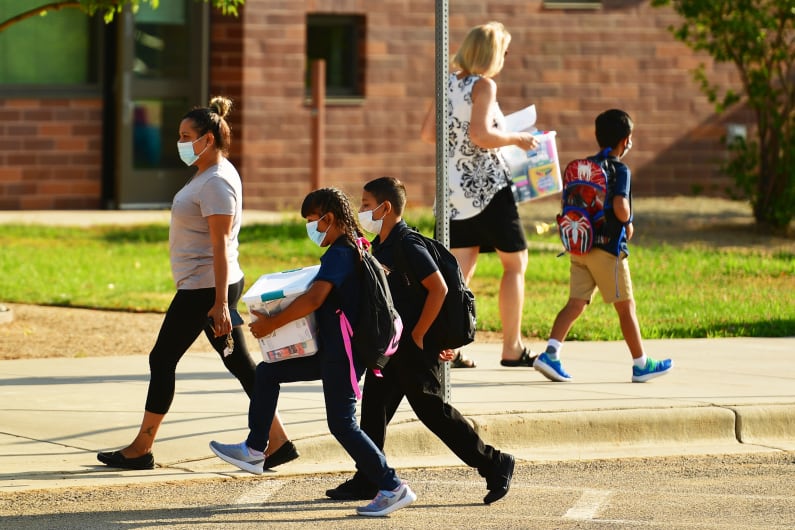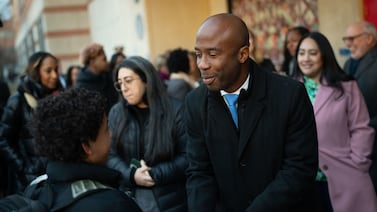Just a week after releasing new COVID-19 protocols and four days before the start of the new school year, Indianapolis Public Schools will require all students and staff to wear masks indoors — regardless of vaccination status.
Last week’s district guidance said masks were optional for vaccinated students and staff. Only unvaccinated students and staff were required to wear masks indoors.
During a Thursday morning media roundtable, IPS Superintendent Aleesia Johnson said the district was reviewing the updated recommendations from the U.S. Centers for Disease Control and Prevention and the Marion County Public Health Department that were based on surging coronavirus cases due to the delta variant. Hours later, IPS issued its updated policy.
The CDC recommends masks for all students, teachers, and staff indoors, regardless of vaccination status. However, the Marion County Public Health Department just recommends masks indoors for all unvaccinated students, teachers, and staff.
According to the new district guidance, students are still encouraged to prove vaccination status to their school in case the mask guidance changes later in the year. Additionally, staff should continue to provide vaccination status.
As Marion County’s 11 school districts open for the first day of school, districts are handling masks in different ways.
Like IPS, Warren Township is requiring all students, staff, and visitors to wear masks indoors regardless of vaccination status.
Wayne, Pike and Washington townships are requiring masks indoors for unvaccinated K-12 students and staff. If Pike students and staff wish to opt-out of wearing masks, they must provide vaccination documentation or a positive test for antibodies. In Wayne, masks are recommended for fully vaccinated individuals indoors and required for unvaccinated students and staff.
In Lawrence Township, masks are recommended indoors for unvaccinated students, teachers, and staff.
In Beech Grove City Schools, masks are recommended indoors for all unvaccinated students in fourth grade and above and for all unvaccinated staff. Masks are optional for fully vaccinated individuals and for all students in Pre-K-grade 3.
In Speedway Schools, masks are required for unvaccinated staff but not required for vaccinated personnel. Students in kindergarten through second grade are not required to wear masks. In third through sixth grades, masks are recommended in the classrooms but required in places like hallways. For students in seventh through 12th grades, masks are required for unvaccinated students when physical distance is not possible. When students are in pods and classrooms, masks are recommended, but not required. All students and staff on buses must wear masks regardless if they’ve been vaccinated.
Wearing masks is optional for students and staff at Perry, Franklin, and Decatur townships.







